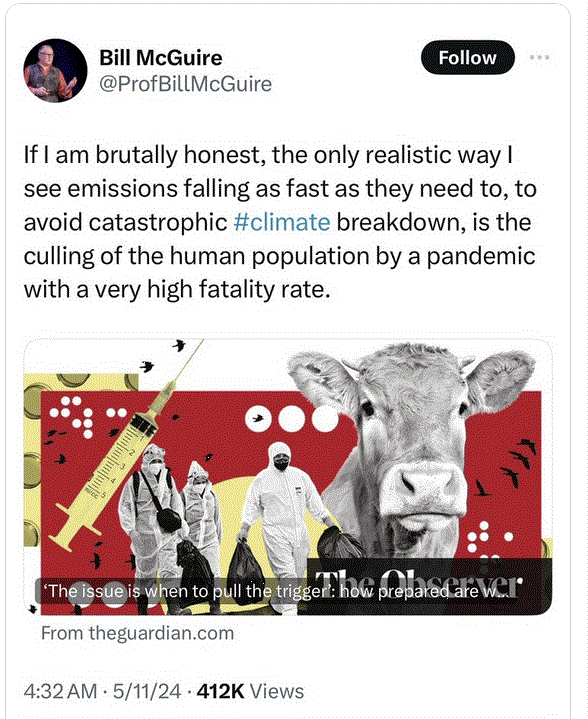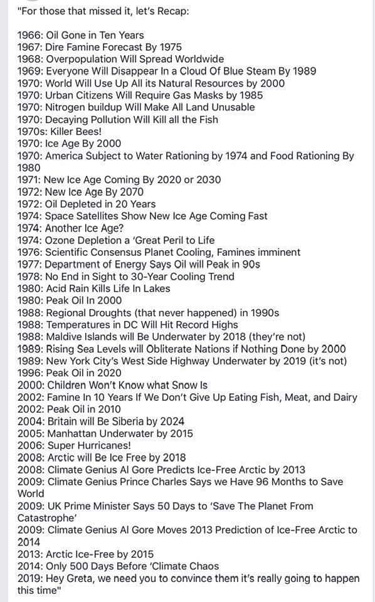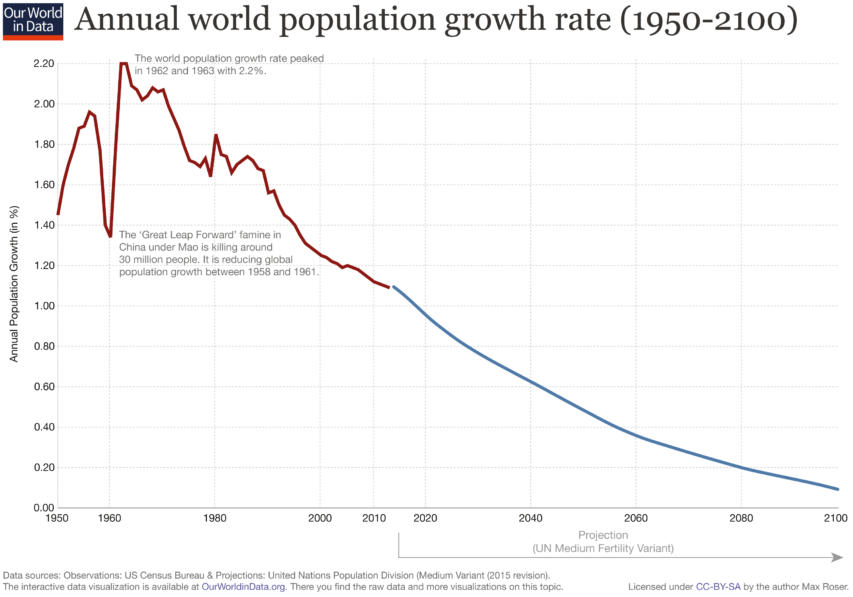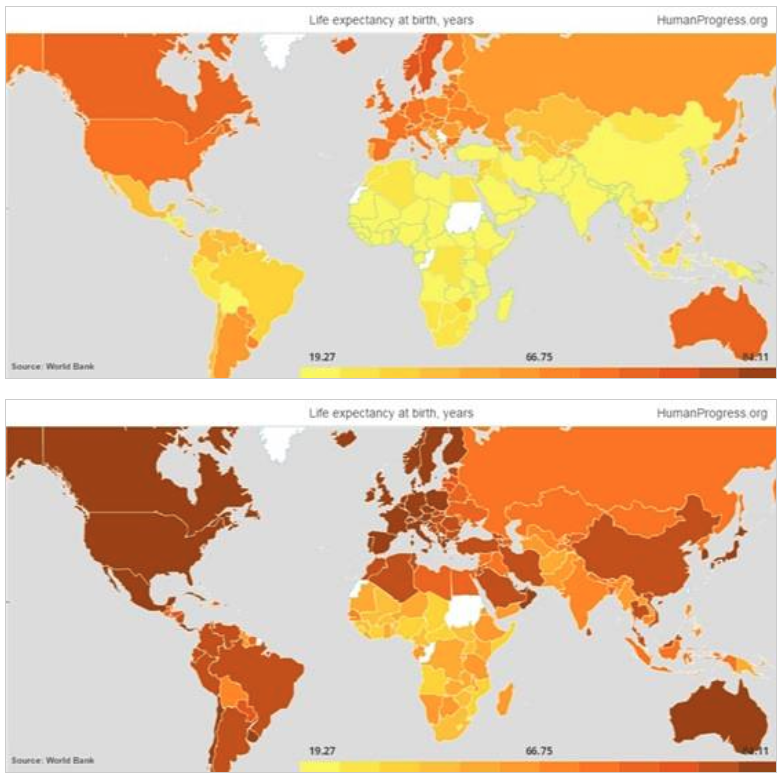 This brings us to the most fundamental fact of rural life in the pre-modern world: the grain is harvested once a year, but the family eats every day. Of course that means the grain must be stored and only slowly consumed over the entire year (with some left over to be used as seed-grain in the following planting). That creates the first cycle in agricultural life: after the harvest, food is generally plentiful and prices for it are low […] As the year goes on, food becomes scarcer and the prices for it rise as each family “eats down” their stockpile.
This brings us to the most fundamental fact of rural life in the pre-modern world: the grain is harvested once a year, but the family eats every day. Of course that means the grain must be stored and only slowly consumed over the entire year (with some left over to be used as seed-grain in the following planting). That creates the first cycle in agricultural life: after the harvest, food is generally plentiful and prices for it are low […] As the year goes on, food becomes scarcer and the prices for it rise as each family “eats down” their stockpile.
That has more than just economic impacts because the family unit becomes more vulnerable as that food stockpile dwindles. Malnutrition brings on a host of other threats: elevated risk of death from injury or disease most notably. Repeated malnutrition also has devastating long-term effects on young children […] Consequently, we see seasonal mortality patterns in agricultural communities which tend to follow harvest cycles; when the harvest is poor, the family starts to run low on food before the next harvest, which leads to rationing the remaining food, which leads to malnutrition. That malnutrition is not evenly distributed though: the working age adults need to be strong enough to bring in the next harvest when it comes (or to be doing additional non-farming labor to supplement the family), so the short rations are going to go to the children and the elderly. Which in turn means that “lean” years are marked by increased mortality especially among the children and the elderly, the former of which is how the rural population “regulates” to its food production in the absence of modern birth control (but, as an aside: this doesn’t lead to pure Malthusian dynamics – a lot more influences the food production ceiling than just available land. You can have low-equilibrium or high-equilibrium systems, especially when looking at the availability of certain sorts of farming capital or access to trade at distance. I cannot stress this enough: Malthus was wrong; yes, interestingly, usefully wrong – but still wrong. The big plagues sometimes pointed to as evidence of Malthusian crises have as much if not more to do with rising trade interconnectedness than declining nutritional standards). This creates yearly cycles of plenty and vulnerability […]
Next to that little cycle, we also have a “big” cycle of generations. The ratio of labor-to-food-requirements varies as generations are born, age and die; it isn’t constant. The family is at its peak labor effectiveness at the point when the youngest generation is physically mature but hasn’t yet begun having children (the exact age-range there is going to vary by nuptial patterns, see below) and at its most vulnerable when the youngest generation is immature. By way of example, let’s imagine a family (I’m going to use Roman names because they make gender very clear, but this is a completely made-up family): we have Gaius (M, 45), his wife, Cornelia (39, F), his mother Tullia (64, F) and their children Gaius (21, M), Secundus (19, M), Julia1 (16, F) and Julia2 (14, F). That family has three male laborers, three female laborers (Tullia being in her twilight years, we don’t count), all effectively adults in that sense, against 7 mouths to feed. But let’s fast-forward fifteen years. Gaius is now 60 and slowing down, Cornelia is 54; Tullia, we may assume has passed. But Gaius now 36 is married to Clodia (20, F; welcome to Roman marriage patterns), with two children Gaius (3, M) and Julia3 (1, F); Julia1 and Julia2 are married and now in different households and Secundus, recognizing that the family’s financial situation is never going to allow him to marry and set up a household has left for the Big City. So we now have the labor of two women and a man-and-a-half (since Gaius the Elder is quite old) against six mouths and the situation is likely to get worse in the following years as Gaius-the-Younger and Clodia have more children and Gaius-the-Elder gets older. The point of all of this is to note that just as risk and vulnerability peak and subside on a yearly basis in cycles, they also do this on a generational basis in cycles.
(An aside: the exact structure of these generational patterns follow on marriage patterns which differ somewhat culture to culture. In just about every subsistence farming culture I’ve seen, women marry young (by modern standards) often in their mid-to-late teens, or early twenties; that doesn’t vary much (marriage ages tend to be younger, paradoxically, for wealthier people in these societies, by the by). But marriage-ages for men vary quite a lot, from societies where men’s age at first marriage is in the early 20s to societies like Roman and Greece where it is in the late 20s to mid-thirties. At Rome during the Republic, the expectation seems to have been that a Roman man would complete the bulk of their military service – in their twenties and possibly early thirties – before starting a household; something with implications for Roman household vulnerability. Check out Rosenstein, op. cit. on this).
On top of these cycles of vulnerability, you have truly unpredictable risk. Crops can fail in so many ways. In areas without irrigated rivers, a dry spell at the wrong time is enough; for places with rivers, flooding becomes a concern because the fields have to be set close to the water-table. Pests and crop blights are also a potential risk factor, as of course is conflict.
So instead of imagining a farm with a “standard” yield, imagine a farm with a standard grain consumption. Most years, the farm’s production (bolstered by other activities like sharecropping that we’ll talk about later) exceed that consumption, with the remainder being surplus available for sale, trade or as gifts to neighbors and friends. Some years, the farm’s production falls short, creating that shortfall. Meanwhile families tend to grow to the size the farm can support, rather than to the labor needs the farm has, which tends to mean too many hands (and mouths) and not enough land. Which in turn causes the family to ride a line of fairly high risk in many cases.
All of this is to stress that these farmers are looking to manage risk through cycles of vulnerability […]
I led in with all of that risk and vulnerability because without it just about nothing these farmers do makes a lot of sense; once you understand that they are managing risk, everything falls into place.
Most modern folks think in terms of profit maximization; we take for granted that we will still be alive tomorrow and instead ask how we can maximize how much money we have then (this is, admittedly, a lot less true for the least fortunate among us). We thus tend to favor efficient systems, even if they are vulnerable. From this perspective, ancient farmers – as we’ll see – look very silly, but this is a trap, albeit one that even some very august ancient scholars have fallen into. These are not irrational, unthinking people; they are poor, not stupid – those are not the same things.
But because these households wobble on the edge of disaster continually, that changes the calculus. These small subsistence farmers generally seek to minimize risk, rather than maximize profits. After all, improving yields by 5% doesn’t mean much if everyone starves to death in the third year because of a tail-risk that wasn’t mitigated. Moreover, for most of these farmers, working harder and farming more generally doesn’t offer a route out of the small farming class – these societies typically lack that kind of mobility (and also generally lack the massive wealth-creation potential of industrial power which powers that kind of mobility). Consequently, there is little gain to taking risks and much to lose. So as we’ll see, these farmers generally sacrifice efficiency for greater margins of safety, every time.
Bret Devereaux, “Collections: Bread, How Did They Make It? Part I: Farmers!”, A collection of Unmitigated Pedantry, 2020-07-24.














